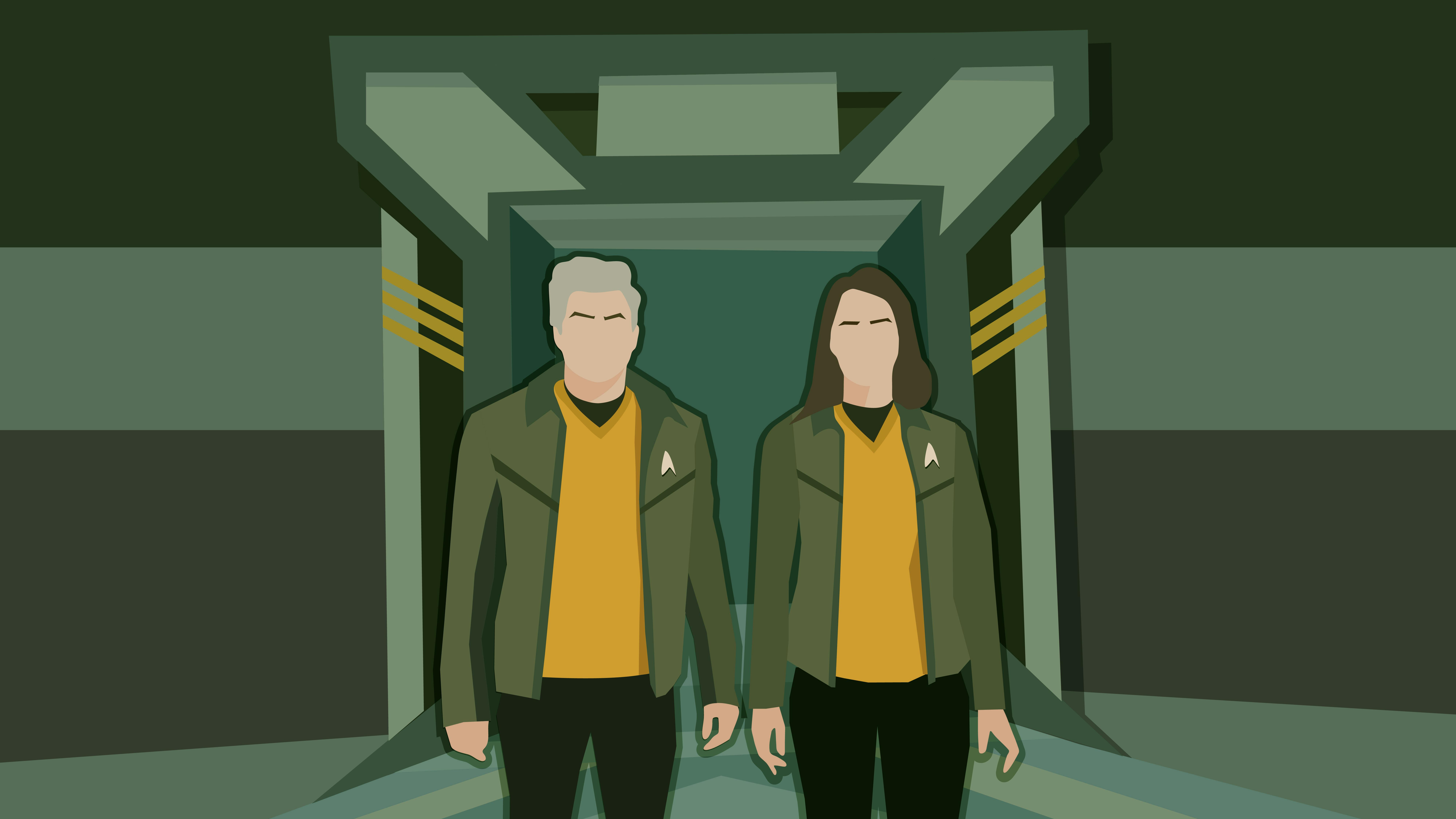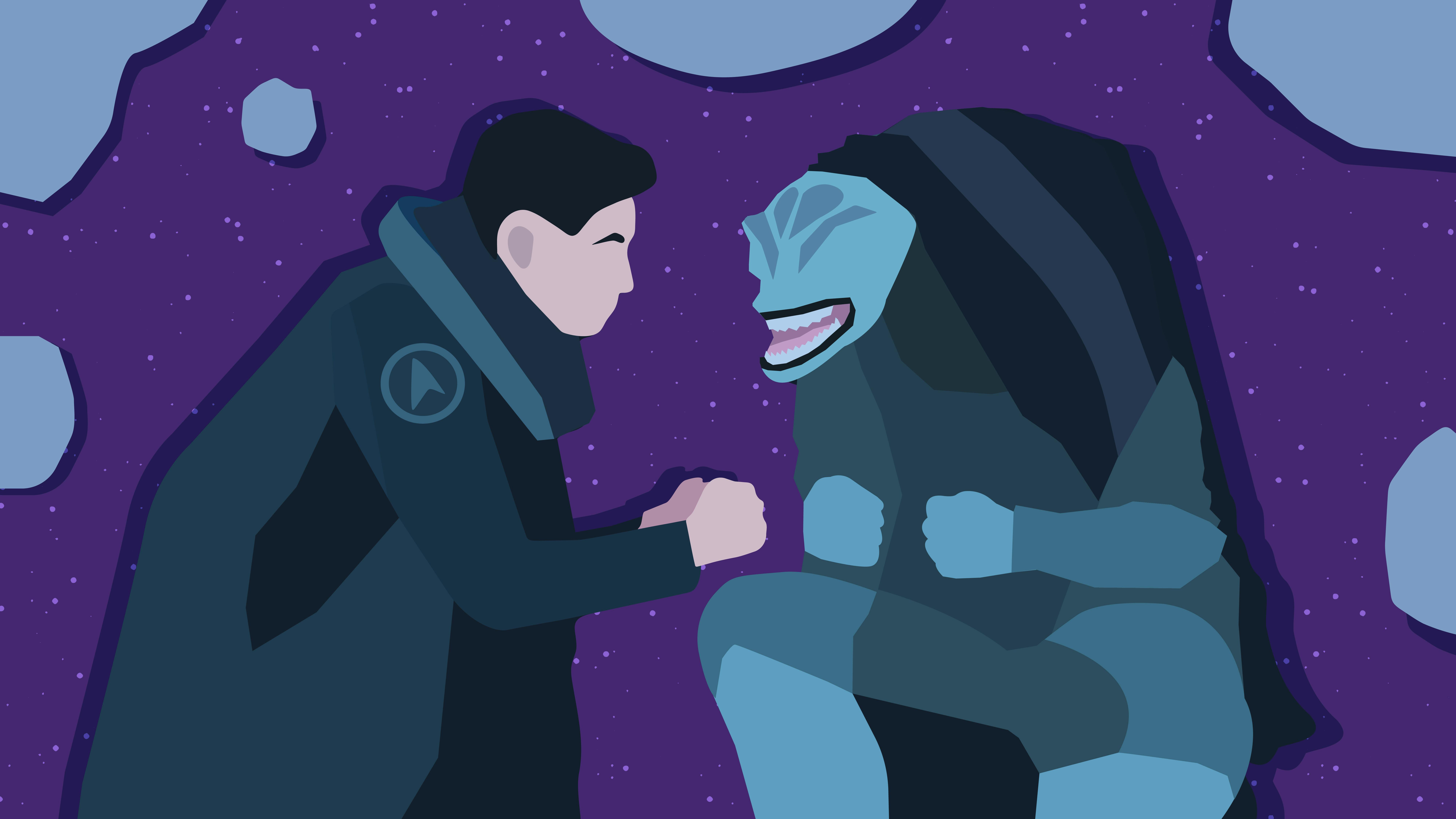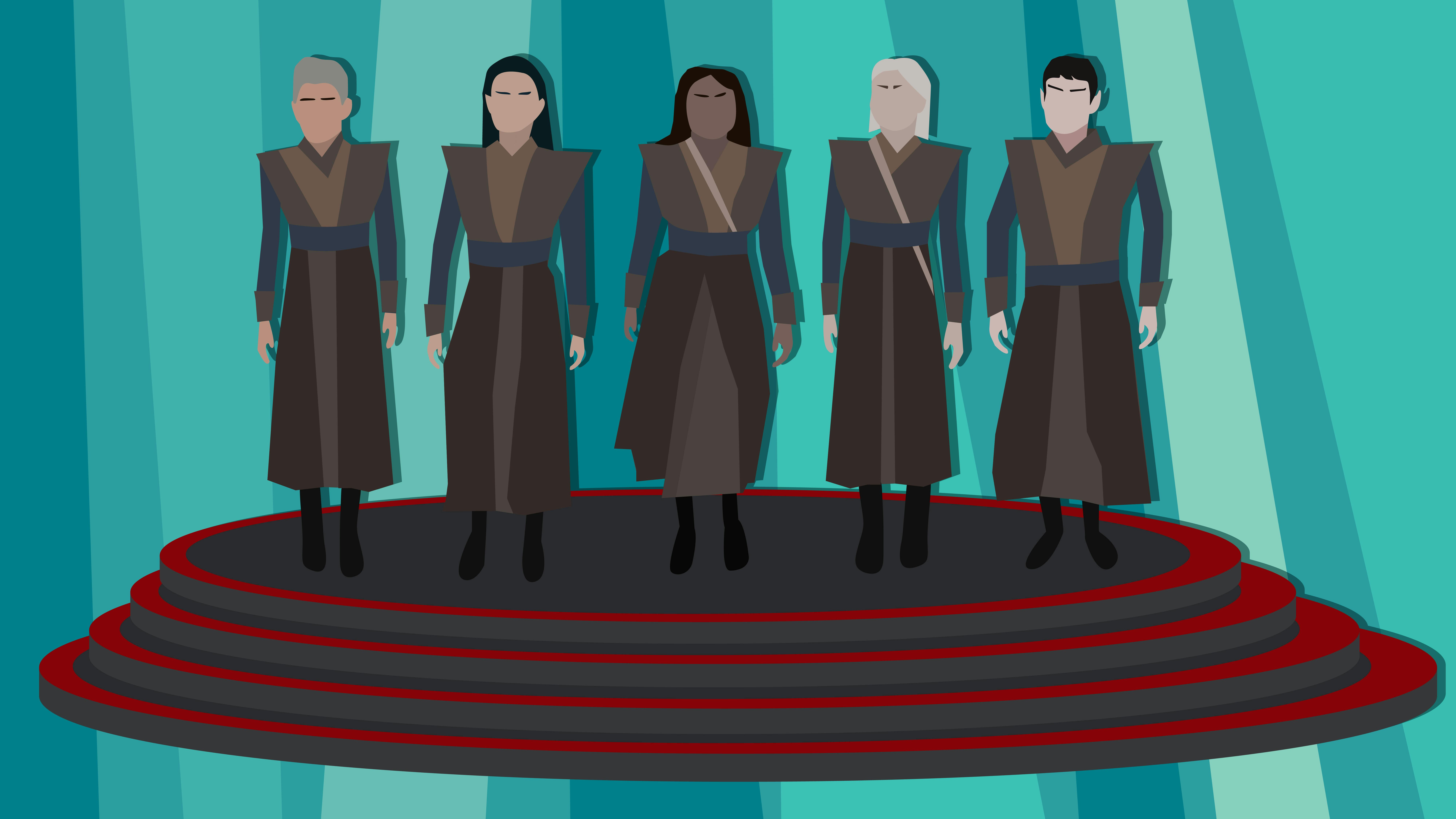Published Aug 9, 2024
On Cardassia, Literature Shapes Society
Dissecting Garak's reading habits can teach us about the Cardassians.
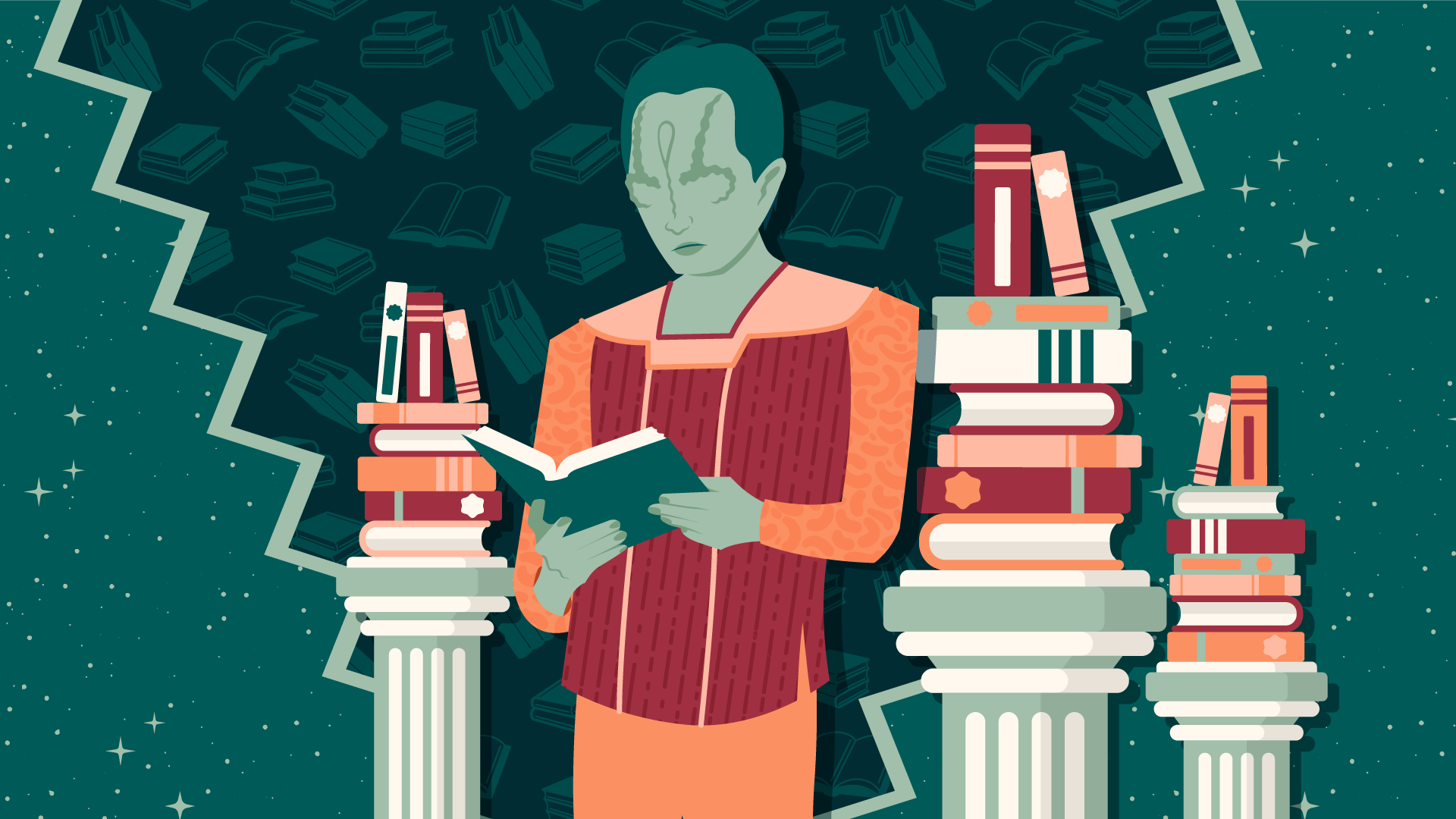
StarTrek.com
One of the most frequently praised aspects of the Star Trek universe is its willingness to explore and develop alien species and the cultures that surround them. Throughout the franchise's 50+ year canon, fans have come to be intimately familiar with details about dozens of fictional races — what kind of food can get Vulcans drunk, what Ferengeis consider to be erogenous zones, and even why Klingons are terrified of adorable little furballs called Tribbles. However, while it's easy to take a species at face level because of what is said about them on-screen, there is also a vast wealth of detail about races and cultures that can be derived from less obvious sources.
One excellent example is the lore surrounding Cardassians. When first introduced in , Cardassians are shown as a ruthless, brutal species who have no qualms about attacking the weak. In fact, for the majority of their early appearances on both Next Generation and , the Cardassians are given very few sympathetic traits, instead presented as oppressive dictators. However, as Deep Space Nine progressed and Cardassian characters like Gul Dukat and Garak became key players in the show's narrative, Cardassia began to become more than just a brutal regime.
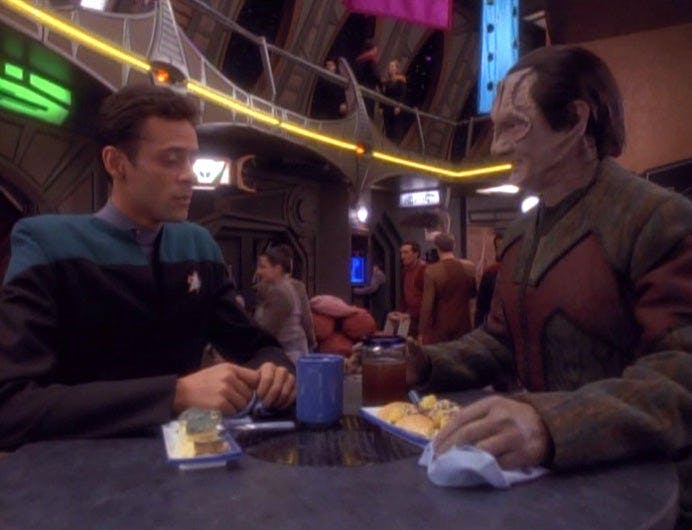
"Distant Voices"
StarTrek.com
While it can mostly be attributed to the further development of Cardassian history, there is another aspect of their culture that I think deserves much closer inspection. It's a key characteristic of Cardassian life that not only provides insight into individual characters like Garak, but that also illustrates the inner workings of Cardassia as a whole. I'm talking about Cardassian literature, and thanks to Dr. Bashir's many lunches with Garak, viewers can take a closer look at how their opposing views and perceptions of Cardassia (and Earth's) literary canon shed light and characterize the Cardassian people.
The first time we are introduced to Cardassian literature (as with many aspects of Cardassian culture) is through Elim Garak, DS9's resident tailor/ex-Obsidian Order spy. During one of his aforementioned lunches with Bashir, Garak gives us small insights into all sorts of aspects of Cardassian culture, and literature seems to be of special importance to not just him, but Cardassia as a whole. In "," we get our first taste of Cardassian literature during a friendly discussion between Bashir and Garak about the merits of a novel Bashir is finishing, titled The Never Ending Sacrifice. Garak is excited to hear Bashir's thoughts on what he describes as "the greatest achievement" of a form of Cardassian literature known as the repetitive epic.
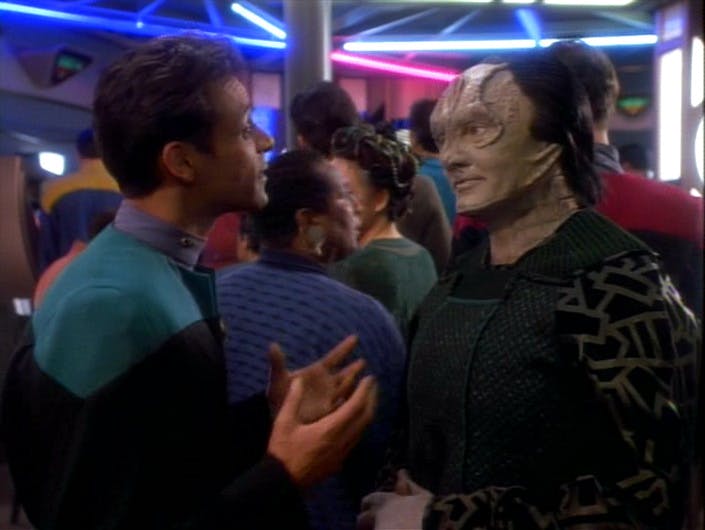
"The Wire"
StarTrek.com
Bashir isn't as enchanted, however, and he tells Garak that he finds it dull because, in his words, "all of the characters lead selfless lives of duty to the state, grow old, and die. Then the next generation comes along and does it all over again." Garak, however, finds The Never Ending Sacrifice to be a work of art precisely because of such a rigid, authoritarian structure.
Although I don't think anyone would refer to Garak as someone easily duped, his entire upbringing on Cardassia was based around a strict set of principles that guided both his thoughts and actions. As the son of the leader of the Obsidian Order, he would have been taught (like all good Cardassian citizens) that there is no greater purpose or honor in life than giving everything you have to the state.
However, Garak's strict upbringing also meant that he would have every reason to hate and reject everything taught to him by his father. His mother was murdered, he was exiled by the world he tried to defend, but he nevertheless continued to find pleasure in literature that glorified obedience to the state. Garak, one of the sharpest minds in the Star Trek universe, seems to have been conditioned by the state to find beauty in the constant servitude depicted in the repetitive epics — an indication of the extent to which the Cardassian government was able to foster loyalty in its citizens.
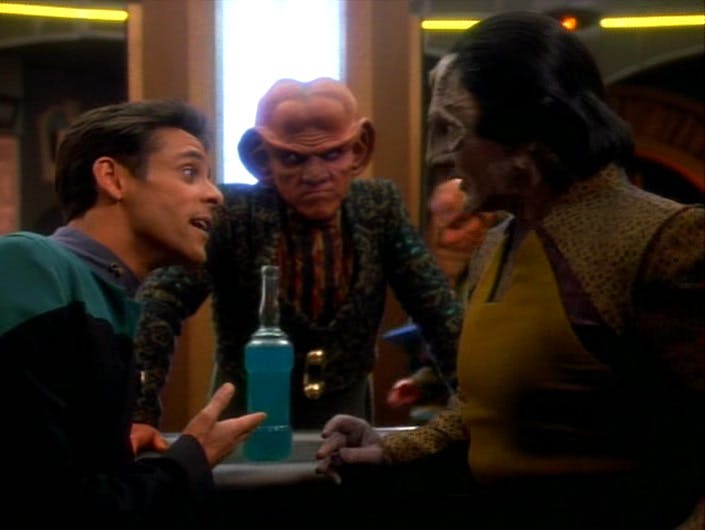
"The Wire"
StarTrek.com
The exchange ends with Garak referring to Bashir's thoughts on the novel as "a Federation viewpoint if ever I heard one" — an example of the underlying xenophobia bred into Cardassians through works of art and literature that never goes away, even when talking with a friend.
The repetitive epic isn't the only form of Cardassian literature discussed by Bashir and Garak, however, nor is it the only form of Cardassian literature characterized by faith and compliance toward the state.
In "Distant Voices," Garak gives Bashir an early birthday present, a holosuite program modeled after one of Shoggoth's enigma tales. The enigma tale, like the repetitive epic, is a genre of Cardassian literature. However, the enigma tale is more akin to an Earth mystery novel — which is why Garak thinks it will suit Bashir's fancy.
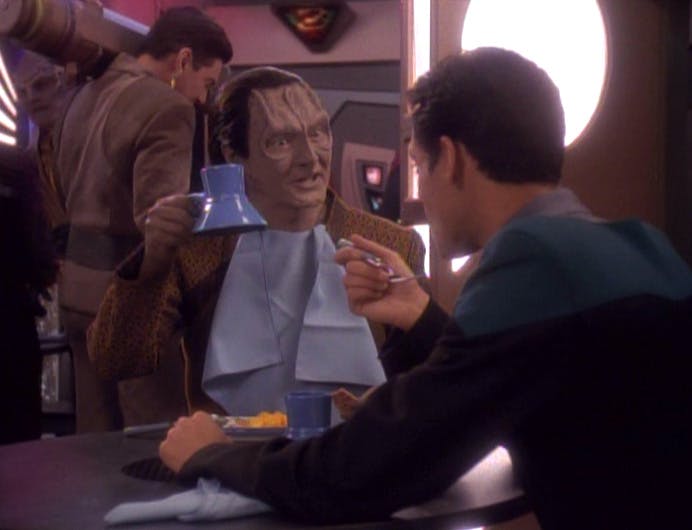
"Distant Voices"
StarTrek.com
However, as Bashir points out, all enigma tales end the same way — every suspect is always guilty. This characteristic of enigma tales can be directly correlated to the Cardassian legal system, in which the verdict of every trial is predetermined before it even begins. As Gul Dukat once tells Captain Sisko, "The people demand it. They enjoy watching justice triumph over evil every time. They find it comforting." Cardassian society is one that is entirely reliant on total and absolute faith in the state — whether it be in the guidance of how to live one's life or the outcome of a legal trial.
Garak's fondness for the structure and "elegance" of Cardassian literature (and, adversely, his disdain for the lack thereof in human works like Julius Caesar) is a window into the inner workings of the Cardassian military state — a regime so efficient and consuming that even the sharpest of minds can be lulled into believing its propaganda by something as innocent as a mystery novel.

